Local Community Organization Spotlight: CASA League
Recognizing the Community Leaders Who Celebrate Pride All Year Round
by Rachel Chao, AFH Graduate Social Work & Public Health Intern
At 7pm on a Thursday, a soccer field in South Philadelphia begins to come alive with people lugging in equipment. They say hello with hugs, fist bumps, or high fives, and joke around between putting on either cleats and shin guards. They talk about how fast the season’s gone by, talk about the last game and strategies for the next one. Occasionally, people greet each other with “Happy Pride Month!”, and talk about the upcoming Pride Parade in Philadelphia. This community and these teams are part of the CASA League in Philadelphia, a non-profit organization with competitive and recreational games. They are one of the few leagues to recognize and welcome players who are non-binary, transgender, or identify as a gender other than the one assigned at birth. Their league is inclusive and was created to be accepting and advocate for folx in the LGBTQ+ community.
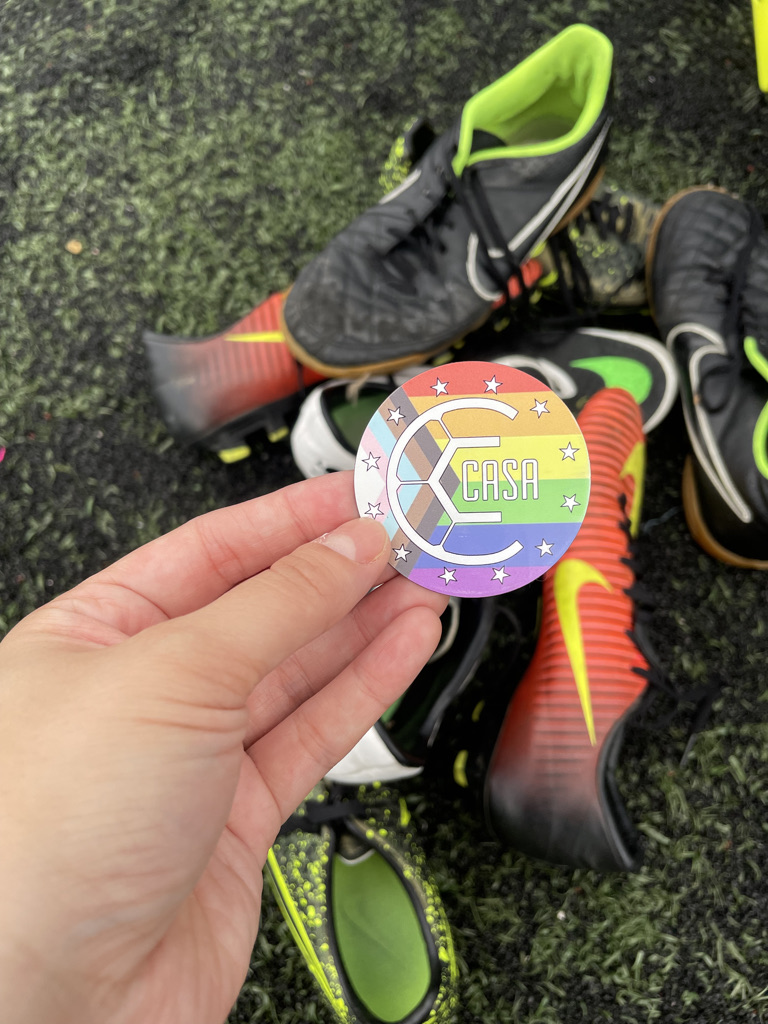
“I came out as non-binary last June, and was looking for a team to play with. I found CASA,” said Ally, who plays on in the Women’s & Non-Binary league. “I really like how inclusive it is, like making sure people’s pronouns are represented. I like how they eliminated ‘co-ed’ and just started matching people where they fit…where you fit, is where you play.”
For athletes who identify as being part of the LGBTQ+ community, this year has felt especially difficult. To identify as a gender differently than the one assigned at birth, it is complicated to navigate the policies and protocols that their governing body might enforce. The controversy surrounding transgender individuals has made it difficult for them to feel welcome, or even able, to participate in group sports. To come out as gay, lesbian, trans, or queer means risking isolation from their teammates, or organization.
For these athletes, this space is an invaluable community.
“It means a lot to me; it’s so much more than just soccer,” says Cindy, who has played in CASA’s league for 5 years. “I don’t know if I thought I would have really needed this, but I do. This is how I met all my queer friends. Thanks to this league, I feel more myself. I get to play with my best friends, I get to play with my wife. I think it’s easy for organizations to just put up a rainbow flag, and say ‘we’re gay-friendly,’ but CASA actually does the work.”
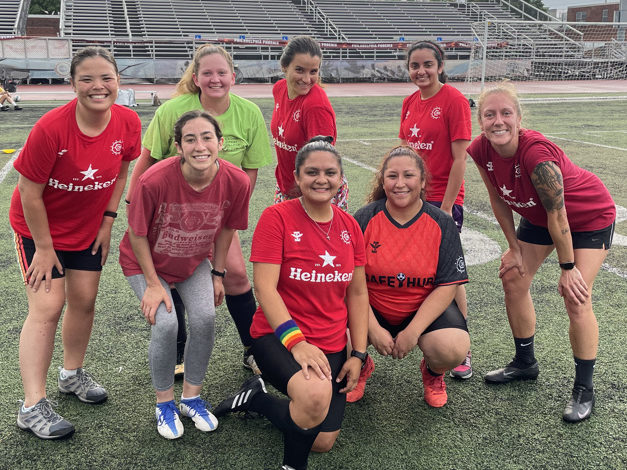
CASA started their mixed division (called “Mixtos”) in 2020, to welcome people of gender identities. Yunio Martinez, CASA’s DEI officer, said that the decision was easy to make, and crucial to supporting their community. “You listen to the community to see what they want.” He started playing in the league right after it was formed, over ten years ago. “For someone like me, LGBT, when you get involved, you do it to make a safer space in your community. I want to make everyone included in this space, everyone can play.”
CASA is might be known for their inclusivity, but they are also very active in their advocacy efforts. Gina, a goalie who has been playing with CASA for four years, is an ally to her LGBTQ+ teammates. She is appreciative of their advocacy efforts, which includes mental health advocacy. She loves how she, and others, are unconditionally welcomed. “I wanted a place with no judgement, that would include everyone. CASA supports a bunch of causes, and the mental health one is big for me. I’m open about my own challenges, and I want others to feel that too.” CASA has a team focused on supporting mental wellness in athletes, named Sporting Serotonin. Its goal is to make sure that people can break the stigma of mental illness, and create a community to reach out to. Gina says, “Everyone is supportive, everyone is understanding, everyone wants to make a difference.”
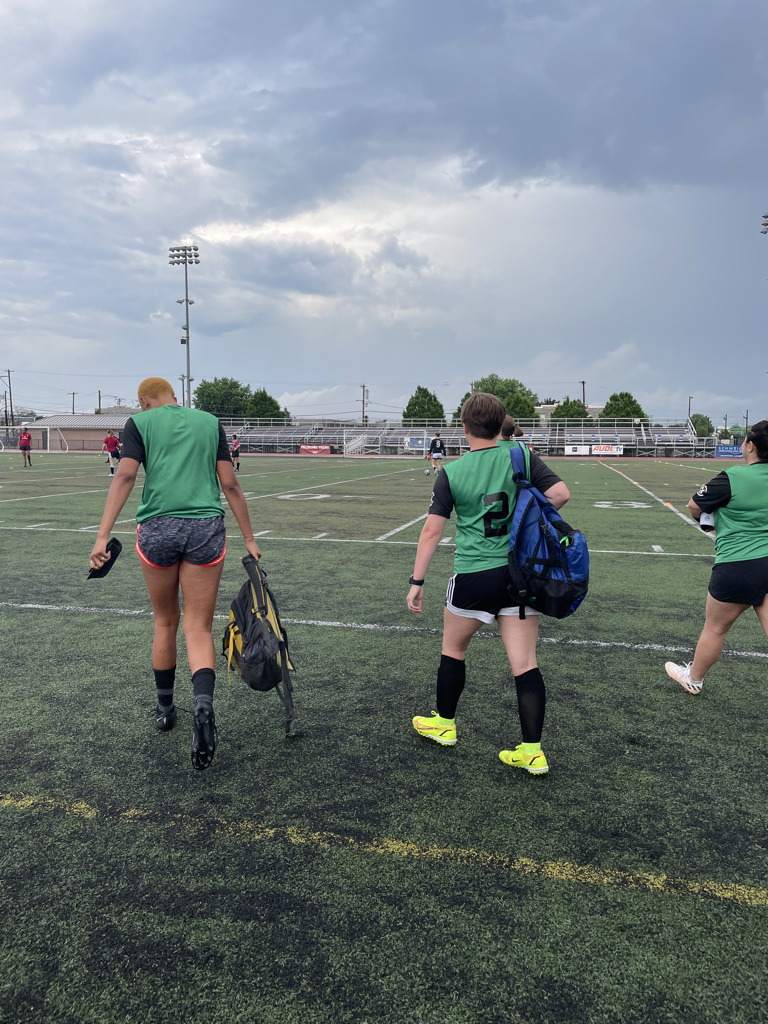
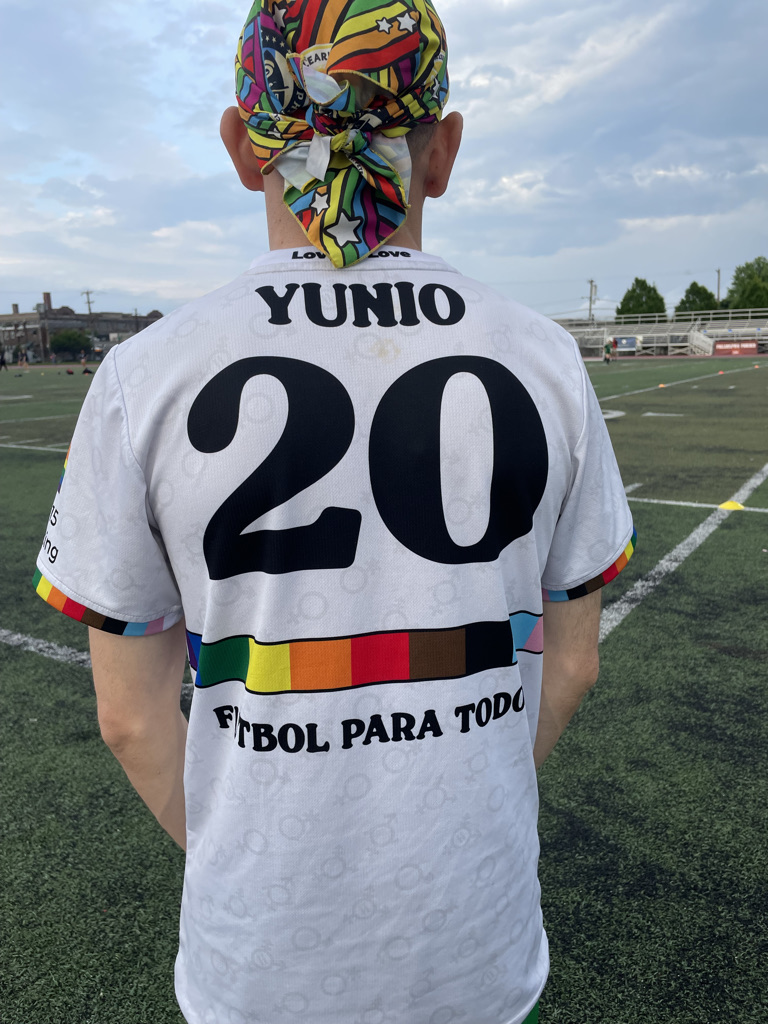
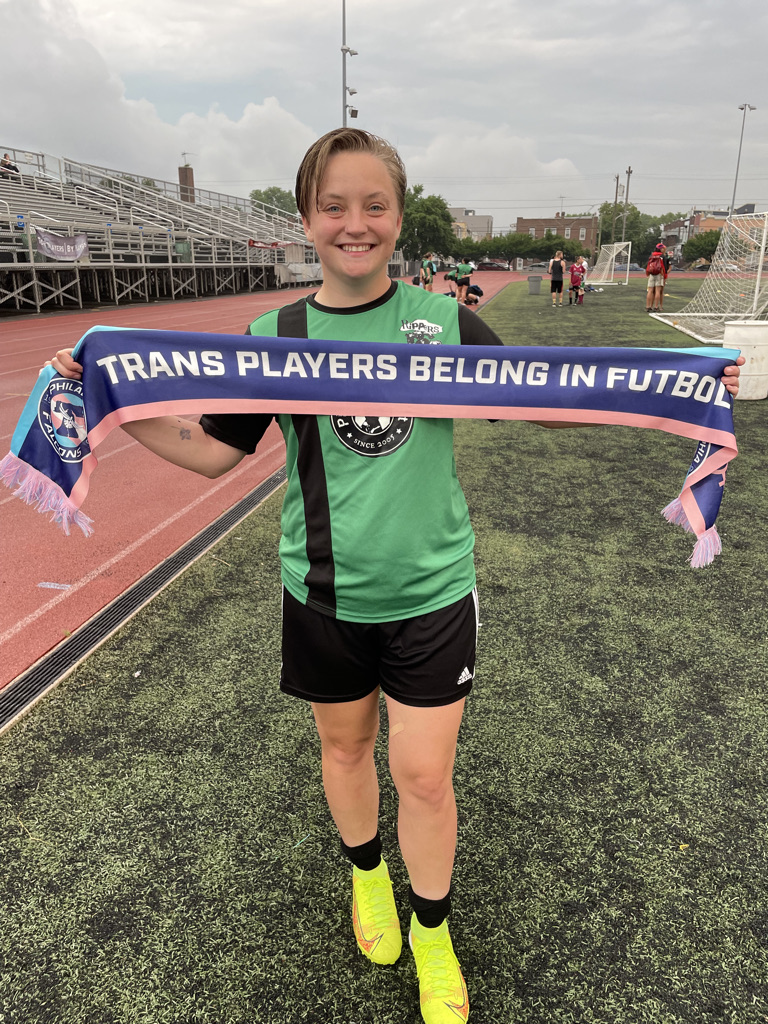
CASA’s goal is to make soccer inclusive, welcoming, and accessible to everyone. “Fútbol para todos” is a guiding principle and core value. At a soccer field in South Philadelphia, they have created a community, a safe and brave space. They’re ready for more people to join them, and to welcome more people into their league.
Ally’s advice to people who are looking for a space to play and compete? “Come on out, because you’re going to find a community.”
